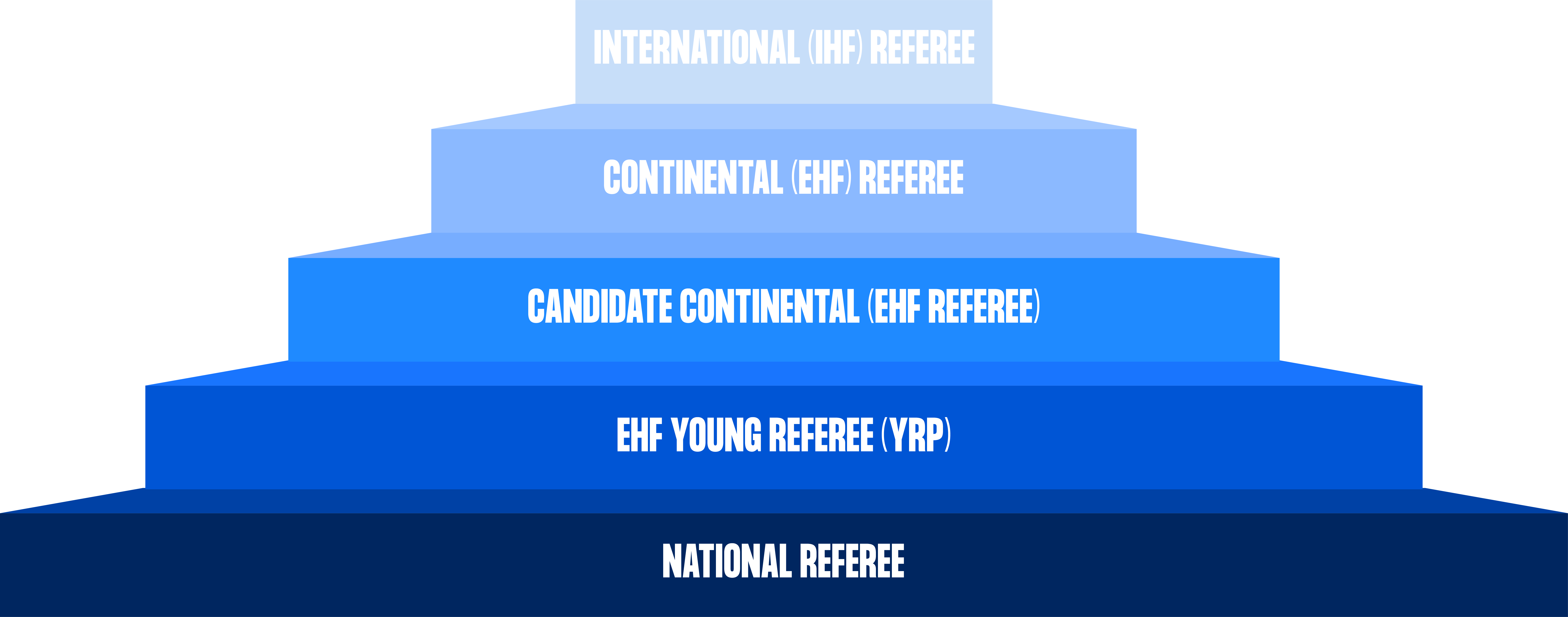Referees manage the game of handball, ensuring that all rules are followed by athletes, coaches, and team officials on the field of play. They are the final decision-making authority on all issues connected with play. Referees have the authority to start and stop play and impose disciplinary actions against players and coaches during a match.
National federations are responsible for the recruitment, selection, education, certification, and development of a referee. They provide referees with appropriate information, materials, and expertise on a top-down basis, with content relevant to the different levels at which the referees operate.
At an introductory level, the new referees are introduced to practical and theoretical exercises on the rules of the game, the role and the duties of the referees, plus a written and a fitness test.
The EHF Young Referee Programme (YRP)
The EHF YRP began in 1998 and aims to monitor and evaluate the performance of young talents in their early years (for a maximum of three years). After each competition, a group of EHF instructors prepare a comprehensive evaluation of all registered pairs to help refine their skill set, and also to identify those young referees who have the potential to become EHF referees in the future.
The core values of YRP are teamwork, hard work and respect and participation helps, encourages, and supports the young referees to improve their overall refereeing experience in a fun and international environment.
A national federation can register one male and female pair aged 20-25 years to the YRP each year.
Continental referees
Referee pairs are proposed by national federations to the EHF as candidates to obtain the status of Continental Referees, otherwise known as the EHF badge. Every year, each federation can register one male and one female referee pair on the EHF candidates' list, aged up to 35 years.
Those pairs are invited to participate in an EHF Candidate Referee Course, where they receive specific education on parts of the rules of the game, incident handling, foul recognition, rule interpretation and application, and EHF directives. They are also intensively tested on their English language command skills, rule knowledge, and conditioning.
Once awarded the EHF badge they are appointed to referee matches at all EHF levels of competition, including men’s and women’s, club and national teams’ competitions, junior and senior events.

